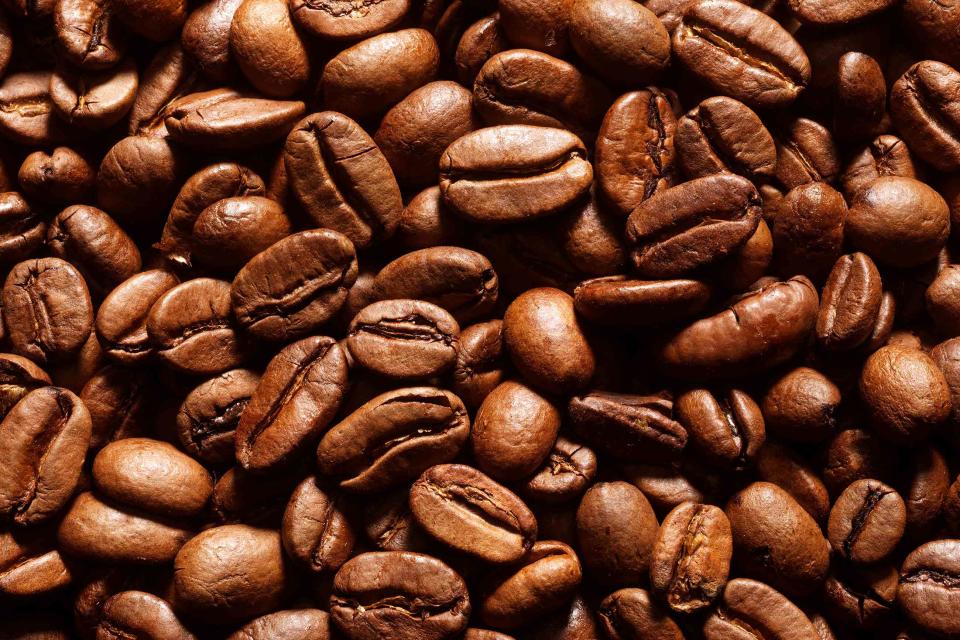Former White House Chef Says Coffee Will Be 'Quite Scarce' in the Near Future
And there's plenty of science to back up his claims.

Henrik Sorensen / Getty Images
Former White House chef Sam Kass is sounding the alarm on the future of coffee.
Earlier this week, the former first chef (who also acted as the White House's first-ever senior adviser on nutrition) shared in an interview with People, he's turning his attention to sustainable agriculture, as he's already worried about the sustainbility of some of the world's most beloved crops.
"A number of foods that we hold very dear to our hearts and largely take for granted are under a real threat," Kass said. "And you're seeing in the future, we're on track for a lot of those to become quite scarce and some really to be largely unavailable to most people and others just significantly increased in cost."
He specifically noted that products like wine, chocolate, shellfish, and rice are all in danger, as well as coffee, a drink the world consumes an estimated two billion cups of every single day. And Kass' comments come with merit, at least according to several recent studies.
:Scientists Expect Chocolate to Go Extinct by 2050
In January 2022, researchers from the Institute of Natural Resource Sciences at Zurich University of Applied Sciences published a report evaluating the impact of climate change on coffee, cashew, and avocado in the scientific journal Plos One. The research team concluded, "Coffee proved to be most vulnerable to climate change with negative impacts dominating all growing regions, primarily due to increasing temperatures."
The team added that climate change adaptation would be necessary in most major producing regions for all three crops, and in the case of coffee, "replacement of arabica with robusta coffee in certain regions" will likely be necessary. However, even with this mitigation, the team added, "policies and strategies are required to ensure that shifts in production locations will not lead to negative environmental impacts such as deforestation, loss of biodiversity, or ecosystem services."
These changes, the team added, will likely take place within the next three decades, noting, "The main coffee-producing countries investigated (Brazil, Vietnam, Indonesia, Colombia) are all seriously affected by climate change with a strong decline in suitable areas."
This study echoes two others highlighted on Science.org in 2019, which hypothesized that at least 60% of all wild coffee species are threatened with extinction, potentially within the next decade, many of which go far beyond satisfying your caffeine craving in the morning.
"Most consumers, and even many coffee sector representatives, are unaware that there are more than two or three coffee species. There are 124 coffee species known to science, occurring naturally in tropical Africa, the Indian Ocean islands (Madagascar, Comoros Islands, and Mascarene Islands), Asia, and Australasia," the authors of one of the studies wrote in their published work in Science Advances. "These species have useful traits for coffee development, such as climatic tolerance, and especially drought tolerance, pest and disease resistance, low or zero caffeine content, and sensory (taste) amelioration."
And in August, Bloomberg reported that Arabica farmers in Brazil, which represents the world's top exporter, are yet again seeing massive losses in its coffee crop, which "already had setbacks due to freakish weather, bringing lower yields that threaten to extend a global supply crunch."
Because of the shortage, Guilherme Morya, senior economic analyst for Rabobank, shared with the Financial Review, "Global prices will continue to go up, and the uncertainty on Brazilian supply is one of the main reasons."
What, then, can the general consumer do? For starters, try drinking a more sustainable cup of coffee, which begins with picking fair-trade-certified coffee products. These products must meet fair trade standards, "ensuring safe working environments and improved conditions, wages, working hours, benefits, and the elimination of forced labor and poverty," Fair Trade Certified explained on its website. "When you see a product with the Fair Trade Certified label, you can be sure it meets rigorous social, environmental, and economic standards." Also, look into a certified B-corp coffee company that must meet similar rigid social and environmental standards.
And the next step is to stay on top of the work of organizations like World Coffee Research, which works to leverage "private sector support to drive public funding to our national partners." Those partners are researching things like breeding innovation to cultivate more resilient plants and make those plants more readily available to farmers worldwide. And, if you really want to put your money where your mouth is, you can also donate to places like the U.C. Davis' Coffee Center, which goes to support its research on agricultural engineering, plant science, sustainability, and more. That way, we can all hopefully savor a few more cups of coffee in the generations to come.

